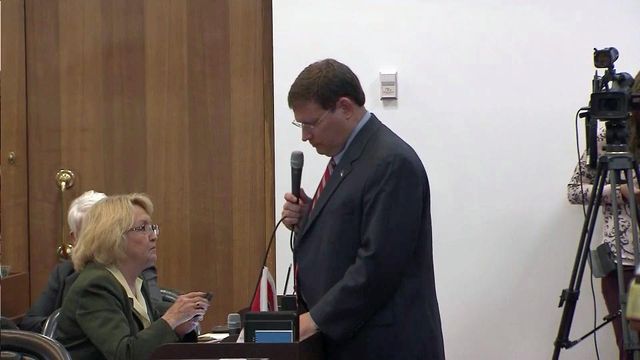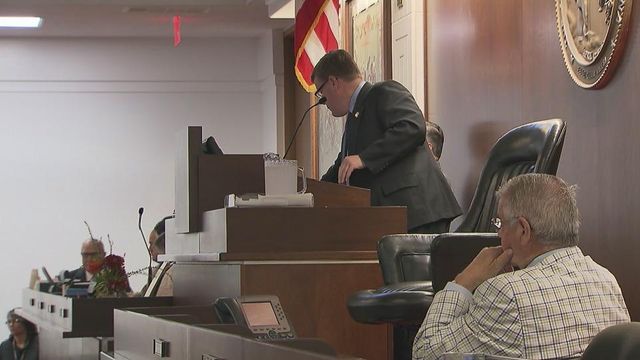Medicaid reform passes; could be years before patients see change
North Carolina will put most of the 1.8 million patients who rely on Medicaid for health care into privately-run managed care plans under the bill passed by both the House and Senate Tuesday.
Posted — Updated"It is a fundamental change in how Medicaid is done," said Sen. Ralph Hise, R-Mitchell.
The state's risk for increasing health care costs and particularly expensive patients will be limited by the new model, Hise said.
There was little debate in the Senate on Tuesday, with only Sen. Gladys Robinson, D-Guilford, speaking against it.
"I'm concerned about what assures our patients are getting quality of care," Robinson said.
Insurers, she said, will have the incentive to pay for fewer services rather than ensure patients get all the treatments they need.
Senators voted 33-15.
Meanwhile, the House battled for nearly two hours before voting 65-40 to approve the measure.
Changes laid out by the bill won't take place right away. Authors expect it will take at least 18 months, and possibly two years, to gain needed approvals from the federal government. It will take another two years past that point to make the transition to managed care.
The bill creates two tiers of insurers. One tier will divide the state up into six or seven regions where provider-led entities can provide health care and services to patients. These PLEs will be created by groups of doctors and hospitals who band together to both administer Medicaid funds and create a network of providers.
A second, statewide tier will allow organizations to provide services to Medicaid patients across the state. PLEs will be able to bid for one of those three statewide slots but so will national, for-profit managed care companies. Critics of the bill fear that those national companies will have deeper pockets and be able to drive PLEs out of the market.
"The playing field is uneven and leans more toward the managed care entities," Robinson said.
Rep. Nelson Dollar, R-Wake, picked up that criticism during the House debate. Dollar, who originally led the effort to craft a Medicaid reform bill, spoke against the compromise on the floor Tuesday.
"We need reform in North Carolina that is based on caring for our citizens and not for a group of stockholders," Dollar said. "Why more than double the administrative cost we’re currently paying by adding middlemen between our doctors and patients? I just don’t see where the value is."
Dollar warned privatization could worsen care or raise the cost of Medicaid, as it has in Florida, South Carolina and Virginia in recent years. Meantime, North Carolina's program saw improvements.
"Medicaid claim cost in North Carolina has actually gone down over the last five years while the program grew by over 200,000 recipients. That’s a fact," Dollar said. "North Carolina ranks 42nd in cost for full-time enrollees. It is by far and away performing better than the majority of managed care states in this country."
“If we put this plan into action," said Rep. Graig Meyer, D-Orange, "your taxpayer dollars are going to turn into profits for insurance companies, based on their ability to limit and cut services to poor people. That is not the way to handle our health care system."
However, Rep Bert Jones, R-Rockingham, one of the bill's sponsors, called it a "huge step forward" that will provide more "budget certainty."
“It is a huge win for the taxpayers of this state, the folks that are actually footing the bill for these services,” said Jones. “For years and years and years, Medicaid has been considered the budget Pac-Man that eats up all the dollars that people in this chamber would like to see be spent on other things."
Rep. Joe Sam Queen, D-Haywood, criticized the bill for failing to include Medicaid expansion.
"It’s not reform. It’s regression," Queen argued. "There will not be better satisfaction. There will not be lower costs. There will not be better health care in rural areas. There will not be better outcomes. To call this reform is to misunderstand the intent."
Sponsors of the bill, stung by Queen's accusation, argued the move will improve health outcomes, noting that North Carolina currently has the fifth-highest infant mortality rate in the country, and more than half the babies born are born under Medicaid. They said commercial insurers are more experienced than nonprofits at incentivizing healthy behavior and overall wellness to avoid the need for treatment later.
"It’s a major step in the right direction, and it’s a step that’s long overdue," said Rep. Justin Burr, R-Stanly, praising the combination of for-profit and nonprofit provider networks. "In government, we tend to put all our eggs in one basket. This makes sure we don’t do that."
Three sets of Medicaid patients will not receive care through the new system. Dental care will continue to be provided on a fee-for-service basis. Senior Republicans in the both the House and the Senate, including Jones and Sen. Bob Rucho, R-Mecklenburg, are dentists.
Payments for dual-eligible patients, poor, elderly adults who qualify for both Medicaid and Medicare, will be overseen directly by the state. For at least the next eight years, mental health patients will continue to receive their care from existing LME-MCOs, quasi-public entities that already provide a system of managed care for mental health services.
The votes for the final deal largely followed party lines, with Republicans supporting the deal and Democrats against it, but there were some notable exceptions.
In the House, five Republicans voted against the bill: Dollar, Speaker Pro Tem Paul "Skip" Stam, R-Wake, and Reps. Pat Hurley, R-Randolph, Michael Speciale, R-Craven, and Jim Langdon, R-Johnston. One Democrat voted for the compromise: Rep. George Graham, D-Lenoir.
In the Senate, Sen. Jeff Tarte, R-Mecklenburg, voted against the bill, while two Democrats voted for it – Sens. Ben Clark, D-Cumberland, and Floyd McKissick, D-Durham.
The measure should reach McCrory's desk on Wednesday. McCrory has said during recent appearances that he expects to sign it.
Related Topics
• Credits
Copyright 2024 by Capitol Broadcasting Company. All rights reserved. This material may not be published, broadcast, rewritten or redistributed.






